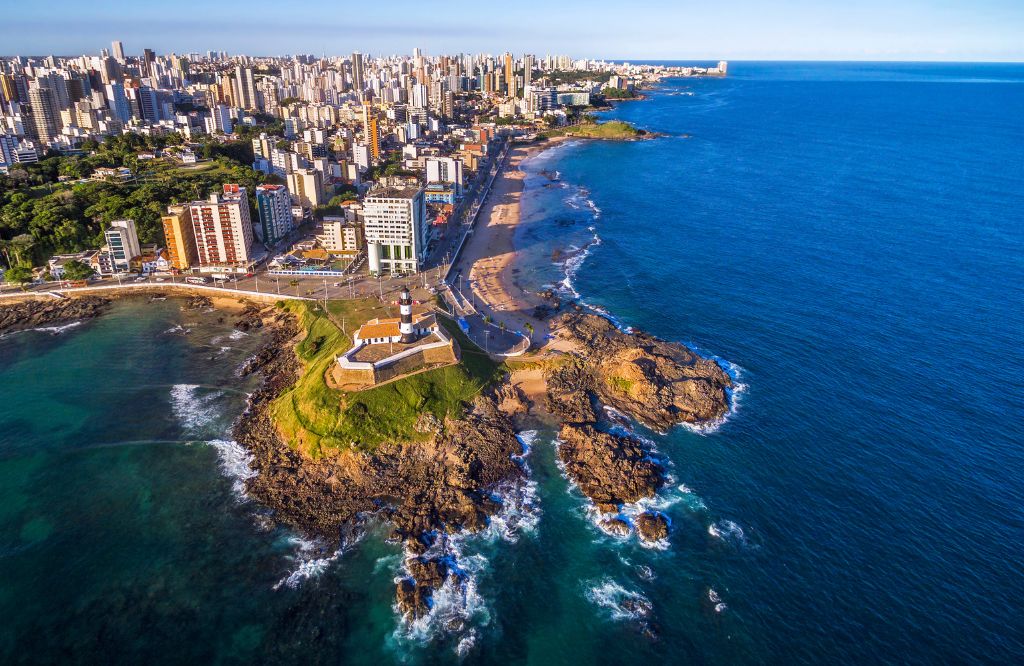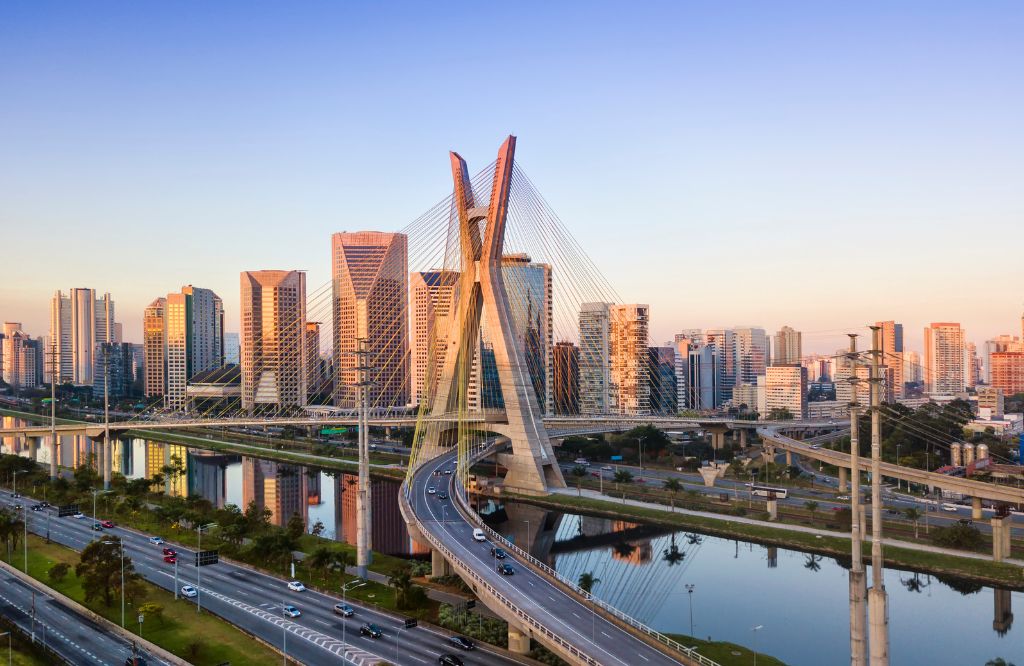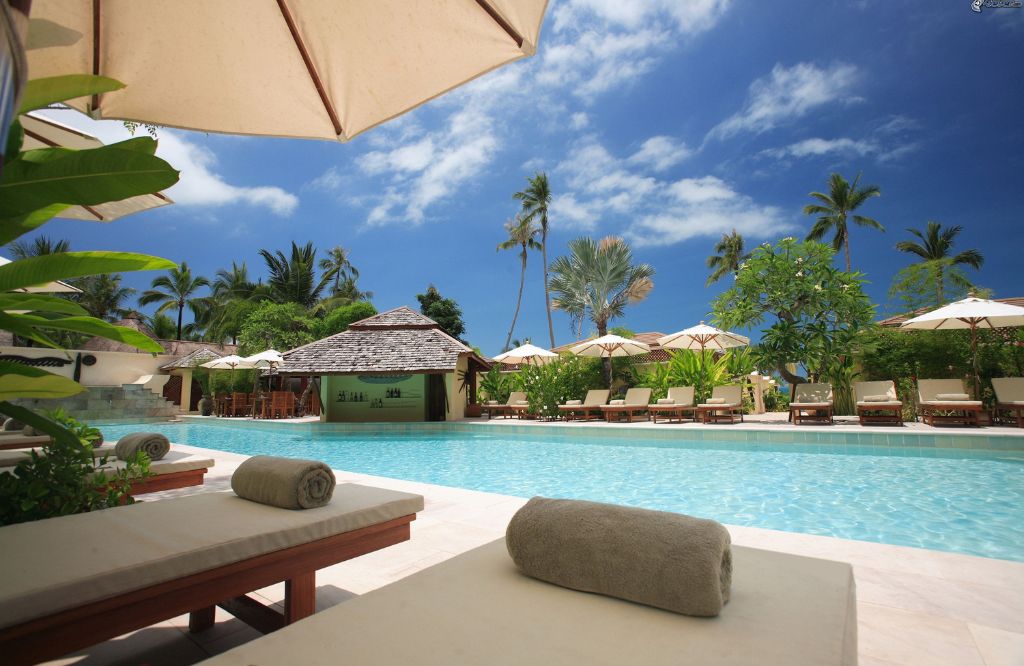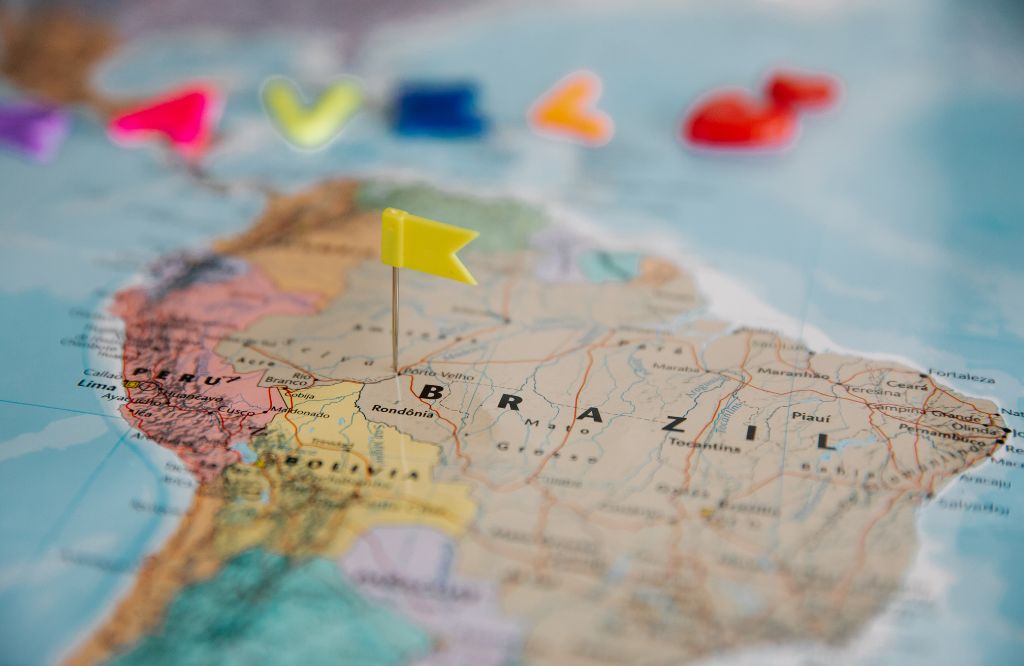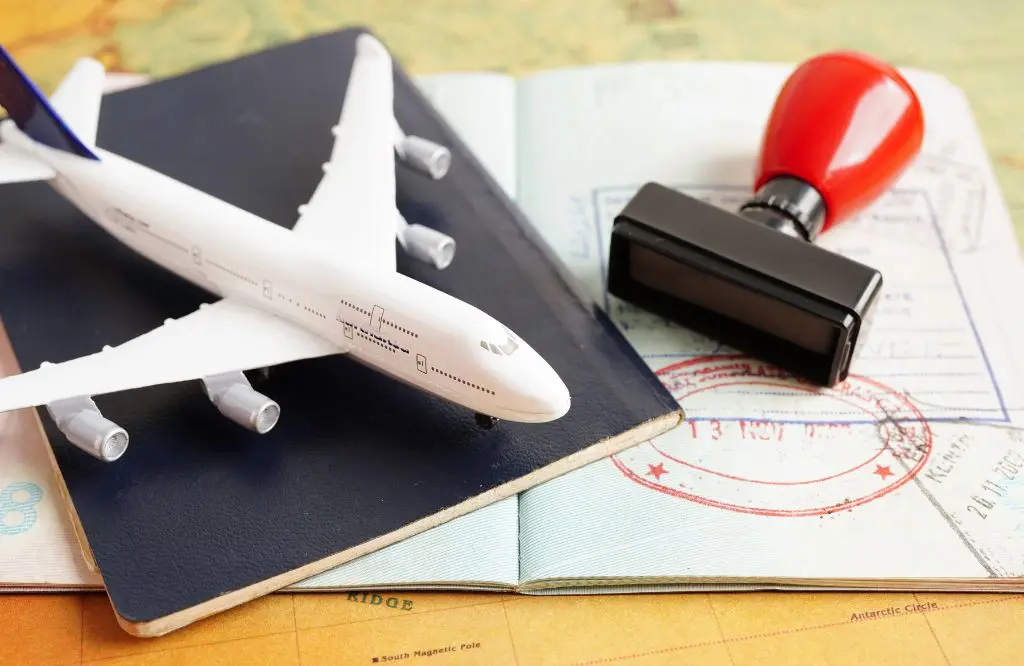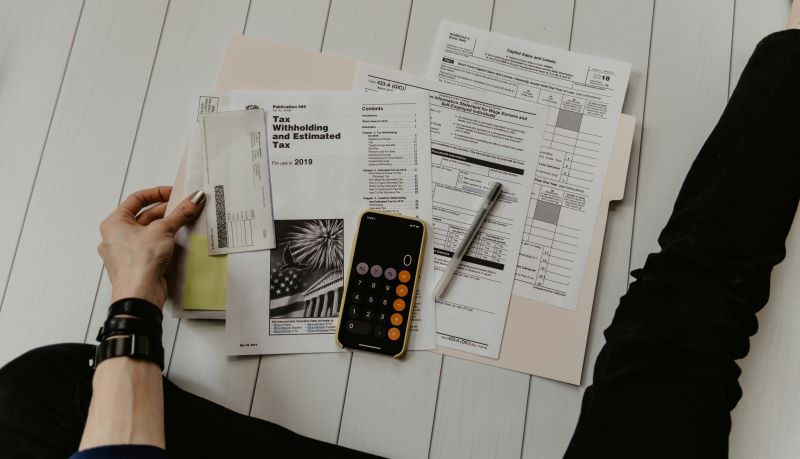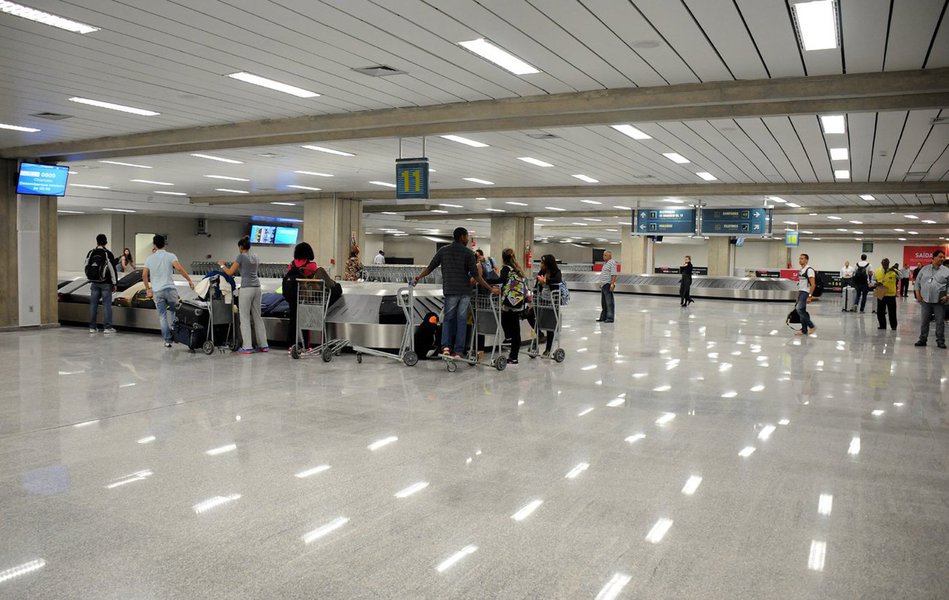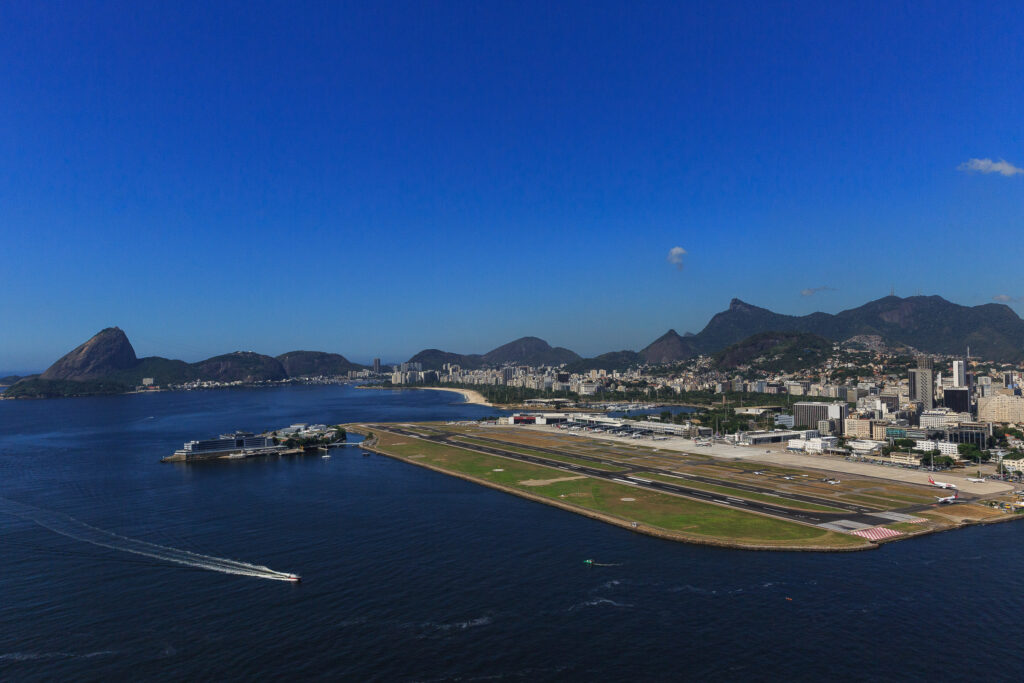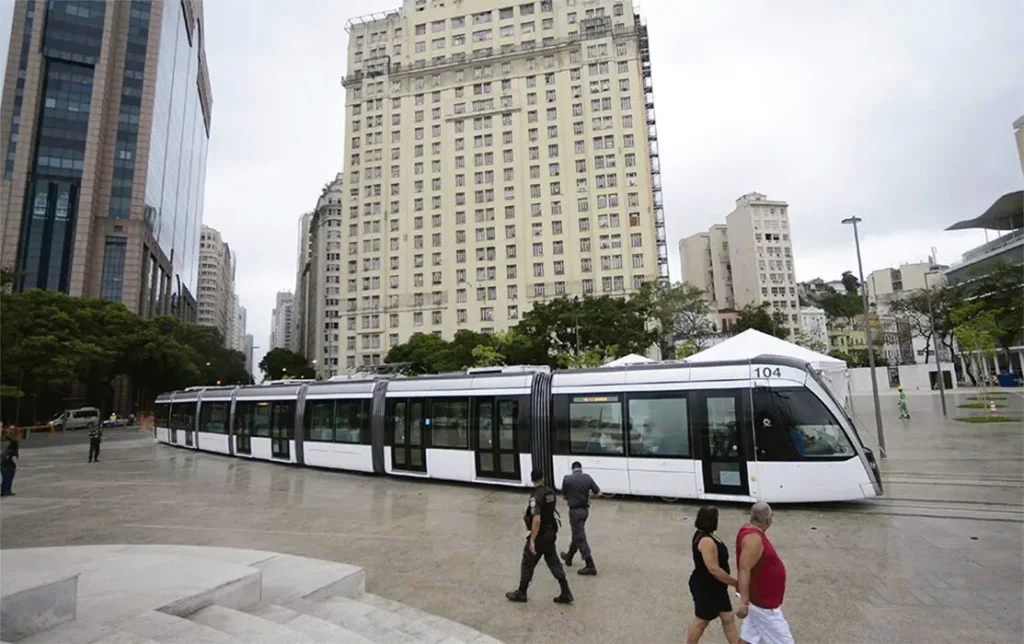Taxes in Brazil for foreigners often raise questions within the first days of arrival. And with good reason: the tax system is complex and full of details that change depending on the type of visa and length of stay.
Many foreigners are surprised by tax requirements upon arrival in Brazil. For example, having a CPF to open a bank account or sign contracts is common even for those who don’t intend to reside permanently in the country.
Another point that often raises doubts is taxation on income, especially when the stay exceeds 183 days. In such cases, there are direct implications for the foreigner’s tax classification, with significant tax consequences.
With that in mind, Brasil ATM has prepared this complete guide to help you understand what taxes in Brazil for foreigners are and how they work. Everything with practical examples, updated data, and reliable guidance for those who want to live, invest, or travel with peace of mind.
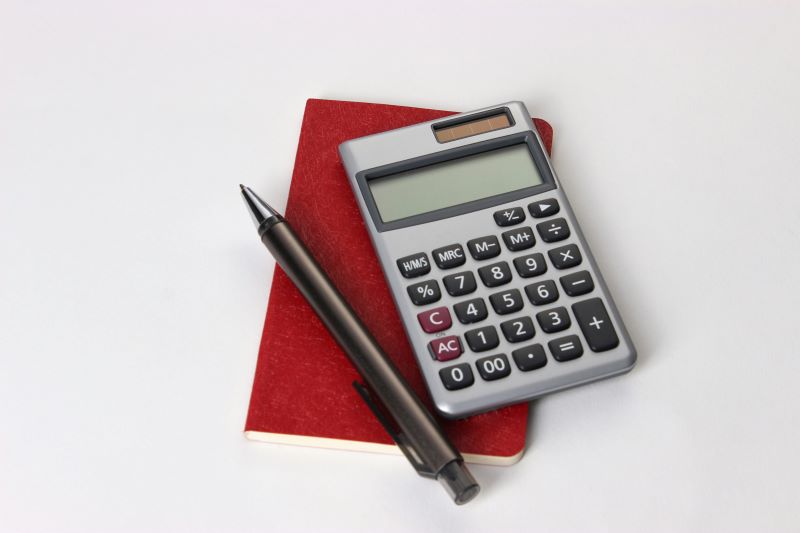
What taxes do foreigners face when living or investing in Brazil?

Understanding the taxes in Brazil for foreigners is essential for anyone who wants to live, work, or invest in the country with safety and proper planning. Taxation varies depending on length of stay, type of activity, and acquired assets — and it can significantly impact the cost of living.
Below, we list the main taxes that apply to foreigners in Brazil, with practical explanations for each one:
1. IRPF – Personal Income Tax
- Who pays: Foreigners considered tax residents (who stayed more than 183 days in Brazil within a 12-month period, even if not consecutive).
- What it applies to: Global income (salaries, rentals, investments abroad or in Brazil).
- Rates: Range from 7.5% to 27.5%, depending on income.
- Practical tip: It is possible to deduct expenses such as health, education, and dependents in the annual tax return.
2. IOF – Tax on Financial Operations
- Who pays: Anyone (Brazilian or foreigner) who performs currency exchange, takes loans, or uses international cards.
- What it applies to: International transfers, purchases in foreign currency, and credit operations.
- Common rates:
- 3.5% for purchases with an international credit card
- 0.38% to 1.1% for money transfers from abroad
- Attention: Frequent international remittances can generate high costs if not well planned.
3. ICMS – Tax on the Circulation of Goods and Services
- Who pays: Consumers, including foreigners.
- What it applies to: Products purchased in Brazil (electronics, clothing, food, etc.).
- Rate: Varies between 7% and 18%, depending on the state.
- Real example: A R$ 5,000 laptop may include up to R$ 900 in embedded ICMS.
4. IPI – Tax on Industrialized Products
- Who pays: Companies, but the cost is passed on to the consumer.
- What it applies to: Industrialized goods such as home appliances, vehicles, and electronics.
- Rates: From 0% to 15%, depending on the product.
- Tip: When buying durable goods, check whether IPI is included in the price.
5. ISS – Service Tax
- Who pays: Consumers, including foreigners.
- What it applies to: Services contracted in Brazil, such as consulting, lodging, apps, and beauty services.
- Rates: From 2% to 5%, depending on the city.
- Important: The amount appears on the invoice as a separate item.
6. IPVA – Motor Vehicle Property Tax
- Who pays: Owners of vehicles registered in Brazil.
- What it applies to: Market value of the vehicle.
- Average rates: Between 2% and 4% annually.
- Attention: Foreigners who buy cars in Brazil must also pay this annual tax.
7. IPTU – Urban Property Tax
- Who pays: Owners of urban properties in Brazil.
- What it applies to: Assessed value of the property defined by the municipality.
- Average rates: Between 0.5% and 1.5% annually.
- Practical tip: Cities like São Paulo offer discounts for early payment at the beginning of the year.
Comparative table of taxes in Brazil for foreigners
| Tax | Who pays | What it applies to | Average rate | When it is paid | Practical notes |
| IRPF (Personal Income Tax) | Foreigners with tax residence (more than 183 days in Brazil) | Global income: salaries, rent, investments | 7.5% to 27.5% (progressive) | Annually, through a return filed at the beginning of the following year | Expenses with health, education, and dependents can be deducted |
| IOF (Tax on Financial Operations) | Any foreigner who performs currency exchange, sends money, or makes purchases | International transfers, credit card, loans | 0.38% to 6.38% | At the time of the operation | High burden on remittances and foreign purchases |
| ICMS (Tax on the Circulation of Goods and Services) | Consumers (including foreigners) | Physical products purchased in Brazil | 7% to 18% (varies by state) | Included in the purchase price | Appears on receipts for products like electronics |
| IPI (Tax on Industrialized Products) | Industries (cost passed to the consumer) | Industrialized goods: cars, appliances, electronics | 0% to 15% (by category) | Included in the final product price | Applies only to manufactured or imported goods |
| ISS (Service Tax) | Service consumers (including foreigners) | Services: lodging, beauty, tech, consulting | 2% to 5% (varies by city) | Charged on the service invoice | Includes apps, clinics, hotels, freelancers, etc. |
| IPVA (Vehicle Property Tax) | Owners of vehicles registered in Brazil | Market value of the vehicle | 2% to 4% per year | Charged annually at the beginning of the year | Electric vehicles and exemptions vary by state |
| IPTU (Urban Property Tax) | Owners of urban properties | Assessed value of the property | 0.5% to 1.5% per year | Charged annually by the city hall | Discounts for upfront payment in many cities; applies to owned properties |
Important notes for foreigners:
- Tax residency determines your IRPF obligation in Brazil. Even without a permanent visa, staying more than 183 days (consecutive or not) in the country may require you to file a tax return.
- IOF is one of the most “invisible” and burdensome taxes. Plan your transfers carefully and avoid using international cards when possible.
- The combined weight of indirect taxes such as ICMS, IPI, and ISS can increase the cost of living in Brazil by up to 30% in some purchases.
Step-by-step: how to calculate and pay taxes as a foreigner in Brazil

To correctly fulfill tax obligations in the country, every foreigner who lives, works, or invests in Brazil needs to understand how to calculate and pay taxes. Below is a structured step-by-step guide, focusing on the main Receita Federal rules, the most relevant taxes, and precautions to avoid surprises.
Practical 7-step guide for foreigners:
- Check if you are a tax resident in Brazil: If you have stayed more than 183 days (consecutive or not) in Brazilian territory within 12 months, you will be considered a tax resident. From then on, you are required to file the Personal Income Tax (IRPF) and pay taxes on your global income.
- Register your CPF and seek specialized accounting support: To carry out any formal operation in Brazil — including opening a bank account, purchasing property, or declaring IRPF — it is mandatory to have a CPF (Cadastro de Pessoa Física, Brazilian Tax ID).
- Calculate IRPF based on your global income: IRPF for foreigners follows the progressive table (7.5% to 27.5%) and considers all income sources, inside and outside Brazil. Use the official Receita Federal simulator or tools recommended by your accountant.
- Plan international transfers considering the IOF: Every money transfer to Brazil is subject to the IOF (Tax on Financial Operations). The rate can reach 6.38%, especially for personal remittances or use of international credit cards.
- Evaluate consumption taxes (ICMS, IPI, ISS): When purchasing products or services in Brazil, you indirectly pay ICMS, IPI, and ISS. These taxes are embedded in the final price of electronics, food, lodging, tech services, etc.
- Consider property taxes (IPVA and IPTU): If you acquire assets in Brazil (such as property or vehicles), you must pay:
- IPVA: annual vehicle tax (2% to 4% over market value)
- IPTU: annual urban property tax (0.5% to 1.5% over assessed value)
- Check for exemptions, international agreements, and tax benefits: Brazil has treaties to avoid double taxation with several countries (like Germany, Portugal, France, and Japan). In some cases, there are exemptions or reductions on income tax for retirement, scholarships, or specific investments.
Comparison between taxes in Brazil and abroad: what changes for foreigners?
If you’re a foreigner planning to live, work, or invest in the country, understanding how taxes in Brazil for foreigners compare to those in your home country can help you make safer, more economical decisions.
The table below shows the main differences between Brazilian taxation and that of countries like the United States, the United Kingdom, Germany, and other OECD countries — considering tax types, average rates, and collection frequency.
| Tax type | Country of origin (e.g., USA, Europe) | Brazil (for resident foreigners) |
| IRPF / Income Tax | Flat or progressive – average 20% to 40% | Progressive table: 7.5% to 27.5% |
| IOF / Banking fees | Low exchange rates (usually < 1%) | IOF can reach 3.5% on transfers |
| VAT / ICMS | Average VAT of 20% (clearly shown on invoice) | ICMS varies from 7% to 18%, embedded in final price |
| Property tax | 0.1% to 1.0% of property value | IPTU of 0.5% to 1.5% per year |
| Vehicle tax | Annual licensing ~1% to 2% | IPVA from 2% to 4% per year on vehicle value |
In summary…
- The Brazilian IRPF is less aggressive for those with average income, but requires attention when declaring foreign assets.
- IOF is one of the biggest burdens for those sending money to Brazil or using international credit cards.
- ICMS is not transparent, as it is embedded in prices — unlike the European VAT, which is itemized on the receipt.
- Property taxes in Brazil (IPVA and IPTU) can be higher than in many developed countries.
- There is no automatic exemption for foreigners: even those with temporary visas or retirees may have tax obligations.
Conclusion: taxes in Brazil for foreigners

If you’re about to move to Brazil, invest, or spend extended periods here, don’t leave your taxes to chance. Understanding how IRPF, IOF, and taxes on consumption and property work can help you avoid losses and ensure greater financial peace of mind.
📚 Want to know more?
Check out other Brasil ATM articles to better understand how the country works, from bureaucratic processes to cultural, financial, and practical tips for foreigners.
Where to withdraw money at ATM24h machines in Brazil
To make the most of your trip through Brazil, bring cash. It guarantees a smooth and stress-free experience. In some places, it’s essential for eating, getting around, paying for attractions, and more.
See below some ATM24h locations in the regions mentioned in this article:
| Where | Location |
| Guarulhos Airport – São Paulo | See all locations |
| Congonhas Airport – São Paulo | See all locations |
| Curitiba Airport | See all locations |
| Brasília Airport | See all locations |
| Florianópolis Airport | See all locations |
Discover Brasil ATM
At Brasil ATM, we see Brazil as a place full of unique beauty and a fascinating culture. Our portal, supported by the global ATM24h brand, reflects our love for Brazil. We want to inspire tourists to explore its wonders safely and well-informed.
We provide accurate, updated, and inspiring information in three languages. That way, you have everything you need to plan your trip with confidence. We have everything for travelers. Also, we offer travel guides, detailed itineraries, and planning tips.
We want to help you create lasting memories. We’ll show you the natural and cultural wonders of Brazil. Explore famous destinations like Rio de Janeiro and São Paulo. Also discover hidden treasures like Lençóis Maranhenses and Fernando de Noronha. We’re here to help you make the most of your journey.

Did you enjoy this article? Read more about Brazil:
- Airports in Brazil – Complete guide with tips, structure, and the country’s main terminals
- Winter in Brazil – Weather, where to go, and what to see in each region
- Spring in Brazil – Weather, top destinations, and what to do in the most flowery season
- Autumn in Brazil – Weather, destinations, and what to do in the most pleasant season of the year
Frequently asked questions about taxes in Brazil
Yes. If you stay in the country for more than 183 days (consecutive or not) within 12 months, you will be considered a tax resident and must declare IRPF on your global income. Learn how to calculate and pay your taxes in Brazil correctly.
The IOF in Brazil ranges from 0.38% to 3.5%, depending on the operation. For personal remittances or purchases with an international card, the rate can be significant. See how to plan your transfers and avoid high IOF costs.
Yes. Brazil has tax treaties with some countries to avoid double taxation, and there may be exemptions for retirement income, scholarships, and specific investments. Understand when it’s possible to pay less tax as a foreigner.
Planning is essential. Seek accounting support, avoid high-IOF operations, take advantage of IRPF deductions, and check bilateral agreements. Learn how to legally optimize your tax burden in Brazil.
Properties and vehicles purchased in Brazil must be reported in the “Assets and Rights” section of the tax return, including purchase value and registration details. Learn how to fill out your IRPF return in Brazil correctly.


